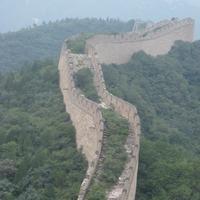17 清明节 *
17 Qingming Festival*
17 Фестиваль Чинг Минг*
清明节 *
Ching Ming Festival*
清明 , 是 中国 的 二十四节气 * 之一 , 也 是 中国 一个 古老 的 传统节日 。
Ching Ming is one of China's 24 th anniversary and is also an ancient traditional festival in China.
清明节 在 农历 三月 ( 公历 *4 月 5 日 左右 ), 此时 正是 春光明媚 *, 空气 洁净 的 季节 , 因此 , 这个 节日 叫做 “ 清明节 ”。
Ching Ming Festival in the lunar calendar in March (the Gregorian calendar * April 5th), this time is the bright spring*, the season of clean air, therefore, this festival is called the “Ching Ming Festival”.
清明节 人们 有 扫墓 * 祭祖 和 踏青 * 插柳 * 的 习俗 。
During the Ching Ming Festival, people have the custom of grave-sweeping the ancestors and the patriots.
中国 人有 敬老 * 的 传统 , 对 去世 * 的 祖先 更是 怀念 和 崇敬 *。
The Chinese people have a tradition of respecting the old, and they even remember and respect the ancestors who passed away*.
因此 , 每到 清明节 , 家家户户 都 到 郊外 * 去 祭扫 祖先 的 坟墓 *。
Therefore, every Ching Ming Festival, every family goes to the suburbs* to sacrifice their graves*.
人们 为 坟墓 除草 *, 添加 新土 , 在 坟 前 上 香 , 摆 上 食物 和 纸钱 *, 表示 对 祖先 的 怀念 和 敬意 。
People weeded the grave*, added new earth, put incense in front of the grave, put food and paper money*, and expressed their nostalgia and homage to their ancestors.
这 叫 上坟 *, 也 叫 扫墓 。
This is called the tomb, also known as the grave.
清明 时节 , 山野 小草 * 发芽 , 河边 柳树 * 长叶 , 到处 一片 新绿 , 正是 户外 游玩 的 好 时候 。
During the Ching Ming Festival, the wild grasses* sprout, the willow trees on the river * long leaves, and there is a new green everywhere. It is a good time to play outdoors.
古人 到 郊外 散步 *, 叫 “ 踏青 ”, 还要 折 * 根 柳枝 * 戴 在 头上 , 叫 “ 插柳 ”。
The ancients walked on the outskirts of the countryside*, called “Queen Green”, but also folded the roots of willow twigs* on their heads and called “Pushing Willows”.
据说 插柳 可以 驱除 * 鬼怪 * 和 灾难 *。
It is said that plucking can remove ghosts* and disasters*.
清明节 祭祖 、 踏青 是 中国 人 的 传统习俗 , 每到 这 一天 , 人们 还是 会 用 各种各样 的 方式 来 怀念 自己 的 祖先 , 也 会 到 郊外 呼吸 * 新鲜 的 空气 , 观赏 蓝天 、 绿树 、 小草 和 鲜花 。
It is a traditional Chinese custom to worship the ancestors during the Ching Ming Festival. On this day, people will remember their ancestors in various ways. They will also breathe fresh air into the countryside and watch the blue sky and green trees. Grass and flowers.

